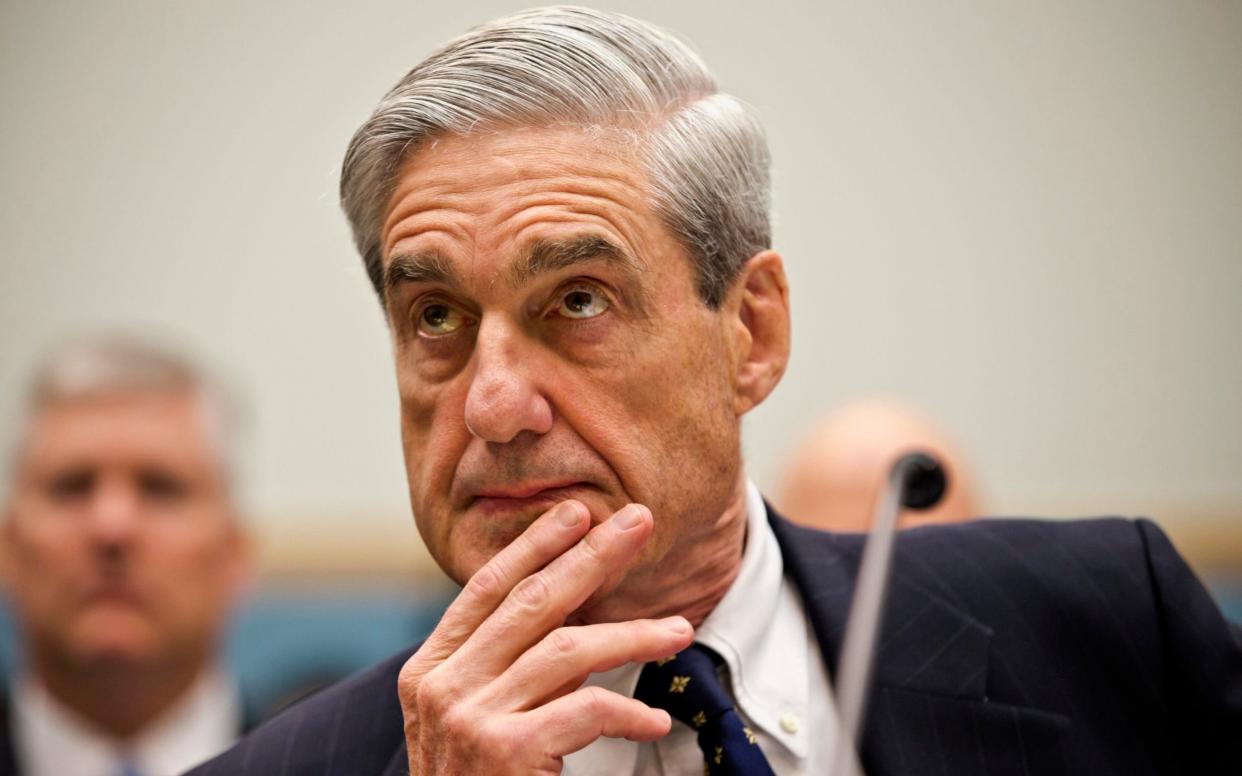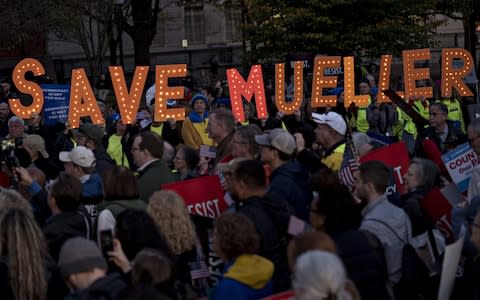Robert Mueller’s final Russia probe report may never be made public

Special counsel Robert Mueller’s final report into Russian interference in the 2016 US election may never been seen in public, despite a drip feed of tantalising details being published over the last week.
As key aides to Donald Trump prepare to be sentenced this week for crimes relating to the Russia inquiry, the president's lawyers are pouring over little-known rules that dictate how the long-awaited conclusion of the probe is handled.
On Friday, intrigue over the protracted investigation, which opponents hope could open the door to impeachment for collusion with Russia in the 2016 elections, was fuelled by Mr Mueller publishing key guidelines for sentencing suspects.
Mr Mueller's team announced that Michael Cohen, the former personal lawyer for Donald Trump due in court on Wednesday, had met a Russian promising “political synergy” with the Trump election campaign, and even offering a meeting with Vladimir Putin.
Mr Mueller also announced that Paul Manafort, Mr Trump’s former campaign manager, told prosecutors "multiple discernible lies" about his contacts with Russians. Mr Trump, in the early hours of yesterday (SAT), insisted that the documents proved he played no role in Russian inteference.

"AFTER TWO YEARS AND MILLIONS OF PAGES OF DOCUMENTS (and a cost of over $30,000,000), NO COLLUSION!" he tweeted.
Yet on Wednesday Mr Cohen, for years Mr Trump’s “fixer”, will be sentenced for the crimes of bank and tax fraud, and for lying to Congress – for which he pled guilty.
Prosecutors in New York are seeking “substantial” jail time, but Mr Mueller does not recommend additional time behind bars as a result of his inquiry.
Despite intense public interest, the inquiry itself may yet remain secret.
Mr Mueller is bound to “provide the [US] attorney general with a confidential report” explaining the prosecutions he brought or decided not to pursue.
However, it is then up to the attorney general, who leads the Justice Department, to decide whether the report is published or handed over to the US Congress. There is no obligation to do either.
The situation is complicated by the fact that Mr Trump, who has railed against the “witch hunt, recently sacked his attorney general, Jeff Sessions, and replaced him with an arch critic of the Mueller probe, Matthew Whitaker.
The uncertainty means there are fears details of Mr Mueller’s findings could become the subject of intense legal and political wrangling and may never fully be revealed.
Mr Trump's own lawyers were once optimistically predicting the probe would be wrapped up by Christmas 2017.
Mr Mueller, the former FBI director put in charge of the Russia investigation last May, is compelled to produce at least one report to the Justice Department explaining his decisions once his work is concluded. There is nothing stopping him producing numerous reports.
The Justice Department then decides the next step. Mr Whittaker, the acting attorney general, is believed not to have recused himself from overseeing the investigation, unlike his predecessor Mr Sessions, and so is expected to decide the course of action. William Barr, another Trump ally, was nominated as the new attorney general on Friday.
The report could be kept secret. It could be published with redactions protecting classified or legally protected information. It could be handed to Congress, either in full or with redactions. Or a summary of the report could be published.
The House of Representatives, one half of Congress which is now controlled by the Democrats, could issue a subpoena demanding the full document.
There is also a possibility that Mr Whittaker or Mr Mueller could be called to give evidence on Capitol Hill.
The lack of clarity around the next move and the politically sensitive nature of the entire probe means there could be a prolonged legal battle over the report, leaving the public in the dark.
John Q Barrett, a law professor at St John’s University in New York City who worked with the independent counsel investigating the Iran Contra scandal in the 1980s, said there was “zero” chance it will be finished by Christmas, pointing to a string of recent developments which suggest a number of investigations are still being pursued.
“It could easily run another six months. I wouldn’t be surprised if Mueller is active as special counsel through much of next year,” Prof Barrett told The Sunday Telegraph.

